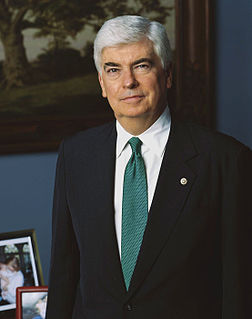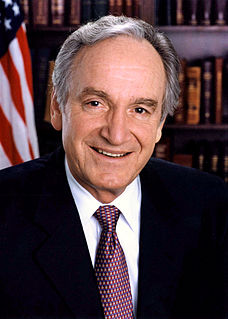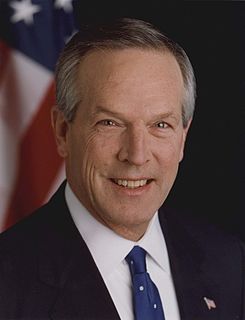A Quote by Scott Ritter
Iraq has not been disarmed 100 percent [but] in terms of what they [Iraqis] have accomplished there are no meaningful weapons or weapons production capability in Iraq today.
Quote Topics
Related Quotes
While we were never able to provide 100 percent certainty regarding the disposition of Iraq's proscribed weaponry, we did ascertain a 90-95 percent level of verified disarmament. This figure takes into account the destruction or dismantling of every major factory associated with prohibited weapons manufacture, all significant items of production equipment, and the majority of the weapons and agent produced by Iraq.
There is no question that Iraq possesses biological and chemical weapons and that he [Saddam Hussein] seeks to acquire additional weapons of mass destruction, including nuclear weapons. That is not in debate. I also agree with President Bush that Saddam Hussein is a threat to peace and must be disarmed, to quote President Bush directly.
Whereas Iraq has consistently breached its cease-fire agreement between Iraq and the United States, entered into on March 3, 1991, by failing to dismantle its weapons of mass destruction program, and refusing to permit monitoring and verification by United Nations inspections; Whereas Iraq has developed weapons of mass destruction, including chemical and biological capabilities, and has made positive progress toward developing nuclear weapons capabilities
Our President feels, and apparently many in the United Nations Security Council feel, that it is necessary to disarm Iraq before Iraq can again use weapons of mass destruction on her neighbors or she makes some liaison with terrorists who will use these weapons either against Iraq's neighbors or ourselves.
It [the intelligence service] concludes that Iraq has chemical and biological weapons, that Saddam has continued to produce them, that he has existing and active military plans for the use of chemical and biological weapons, which could be activated within 45 minutes, including against his own Shia population; and that he is actively trying to acquire nuclear weapons capability.
Iraq both poses a continuing threat to the national security of the United States and international peace and security in the Persian Gulf region and remains in material and unacceptable breach of its international obligations by, among other things, continuing to possess and develop a significant chemical and biological weapons capability, actively seeking a nuclear weapons capability, and supporting and harboring terrorist organizations.
It was not the United States who invaded Kuwait; it was Iraq. It was not the United States that went to war with Iran; it was Iraq. It was not the United States that fired chemical weapons at Iran; it was Iraq. And it was not the United States that murdered innocent Iraqi citizens with chemical weapons; it was Iraq.
I said in October of 2008 that there was no proof that Iraq had weapons of mass destruction or had the intention or capability of attacking the United States. Here we are. Almost 4,700 troops died, tens of thousands injured, over a million Iraqis dead. It will cost $5 trillion in the end for the war.
American envoys came to see me before the crisis in Iraq and asked me to say that there were nuclear weapons in Iraq. I refused. They even told me that things would go well for Belarus in terms of investments, etc. All I had to do was to support them. I told them that I couldn't do it because I knew that there were no nuclear weapons there.
Change of regime with respect to Iraq had nothing to do with this; it had everything to do with the fact that Iraq had weapons of mass destruction. And at the time change in regime as a policy came into effect in 1998, it was seen as the only way to compel Iraq to get rid of its weapons of mass destruction.

































